
The hyper freelance model
How freelancers can thrive professionally by diversifying the ways through which they offer their unique expertise.
Summary: I'm proposing a model in which freelancers can thrive professionally by diversifying the ways through which they offer their unique expertise. This model is made of three activities: freelancing, teaching and product building (consulting, education, product).
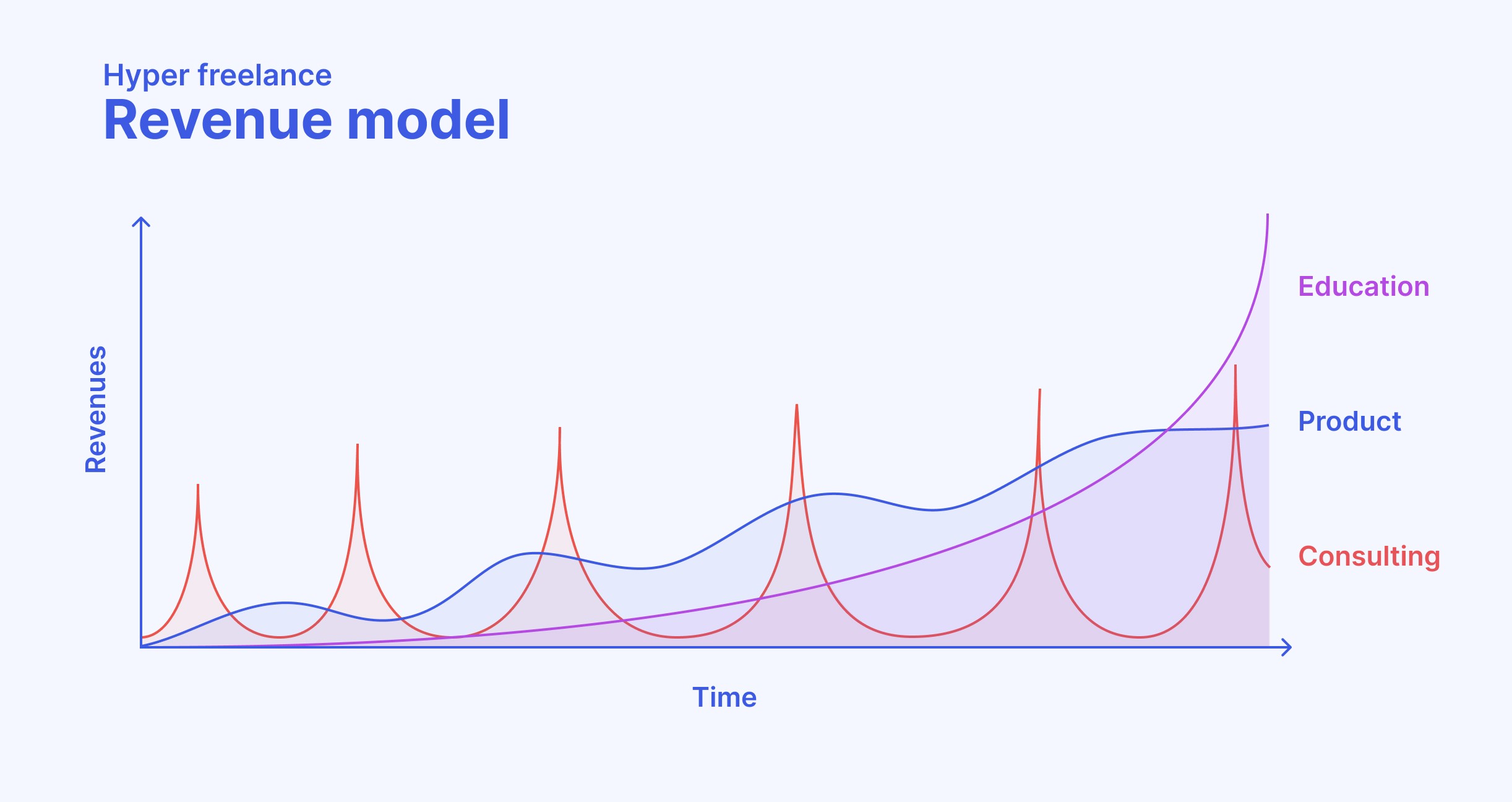
Hyper-freelancing : a model to thrive with your ideas
How it works: 1. As you work with clients as a freelance consultant, you'll naturally spot recurring pains. 2. You share that knowledge in courses. 3. Having grown a community and validated further insights, you build a product.
Consulting
The freelancing phase is crucial to refine your positioning, grow a small professional network, build credentials, and spot wider trends. Pros of this activity: you get to choose when to work and with whom. You just trade your time and your unique expertise to your clients. Cons: as Naval wisely tweeted, "you’re not going to get rich renting out your time. You must own equity." The inconsistent flow of new clients is also a source of anxiety for freelancers.

Education
With enough experience and abstraction, you then share everything you know in the teaching phase. This phase creates multiple virtuous circles, notably letting you charge higher rates for your consulting activity and creating a potential audience for your first product.
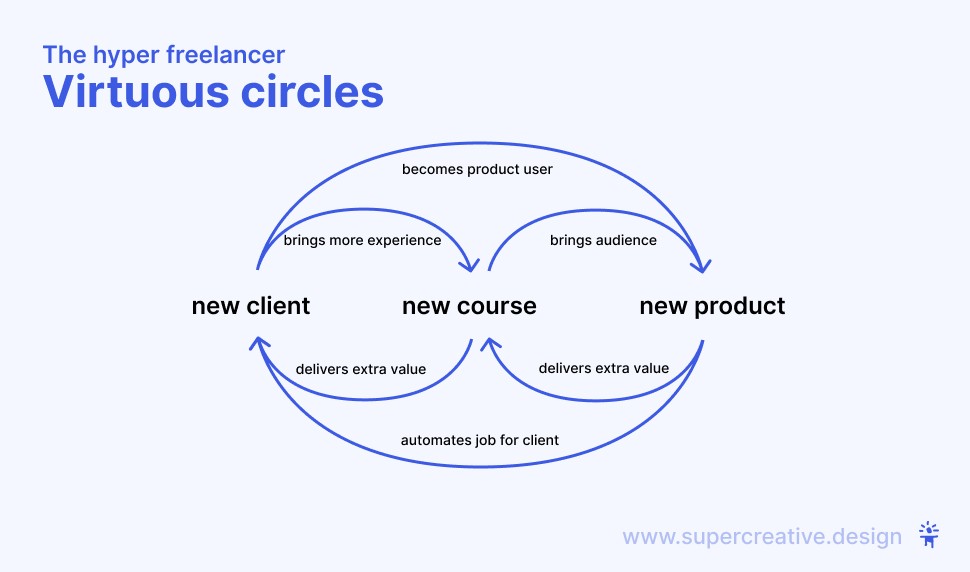
Product
Finally, with an audience, experience, and cash, you can remove yourself from providing services and instead sell a product that grows with you. It doesn't have to be massive.
What does it take to make this model work?
This model can only work if one's proposed value is different enough from the competition. Don't strive to be the best, strive to be unique.
In order to make, we need to sell. To sell we need to be heard, and to be heard we need to conquer and claim a space that’s our own. The knowledge economy, with universities as its foundation, rewards hyper-specialization. To escape competition while remaining relevant, aim for the goldilocks "just-right" level of positioning: no fewer than 10 and no more than 200 other people who can say they do the same thing as you.
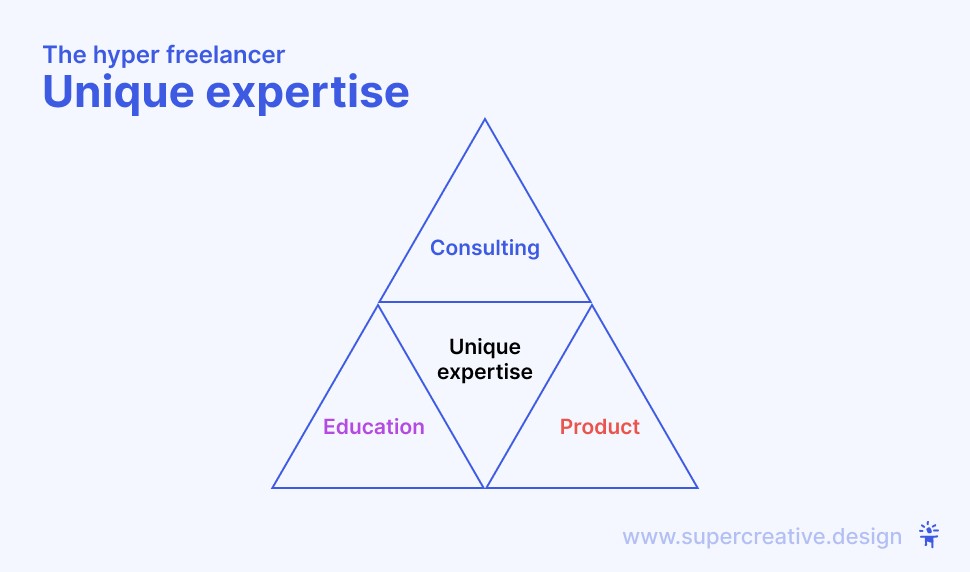
These three activities are just different ways to sell your specialization: for the masses (product), the rest of the knowledge economy (courses), and individuals (freelancing). As you keep mixing these, explore and exploit a unique positioning.
Hyper-freelancing requires a broad set of skills. So many, in fact, that you can’t possibly be good at all of them. But as entrepreneurs of ourselves, this is an exciting self-development ideal. If freelancing is hard, this model is god-mode.
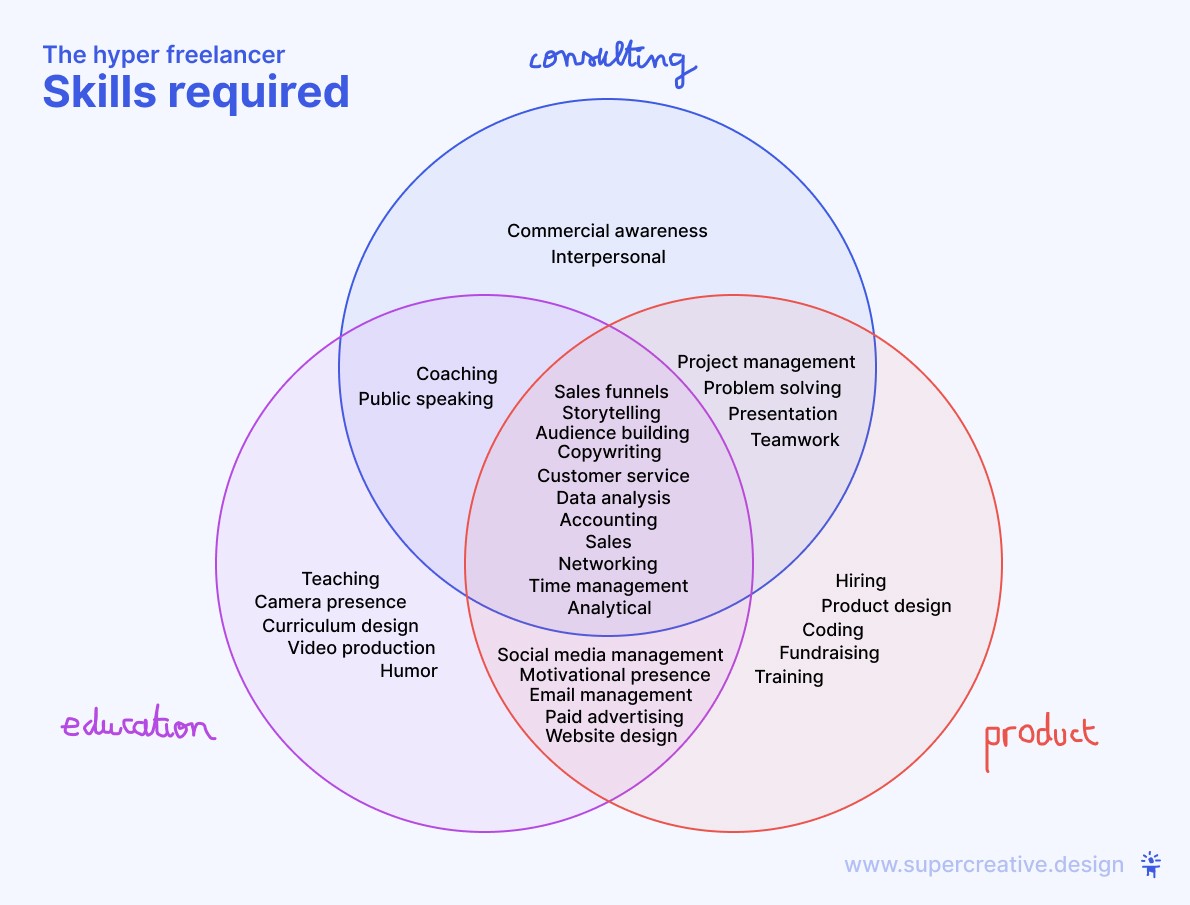
Making good product decisions is almost diagonally opposite to making good consulting decisions. You need the ability to switch your brain on and off easily. It's hard! That's why it's *hyper* freelancing. It's eclectic and intensely demanding. You have to say no a lot more.
In the zeitgeist
The hyper-specialization and individualization of modern capitalism is a breeding ground for creating new types of jobs. We just work more jobs, with different identities, and lead multiple lives simultaneously. In fact, we can give ourselves the job titles we want. It's as easy as changing your LinkedIn bio. Today, this model might seem extreme. Tomorrow it will be second nature.
Successful examples
One of the dangers of this model is being unfocused and scattered. You'd probably be better off just choosing one activity that you enjoy and doubling down on that.
This model is fantastic in theory. In practice, it's extremely hard to work out. So, I started an example list of individuals that fit this model of being a hyper-freelancer; individuals who combine consulting, education, and having their own products. Studying what exactly made them successful is a good investment of your time. Here's the link to the full table ↓
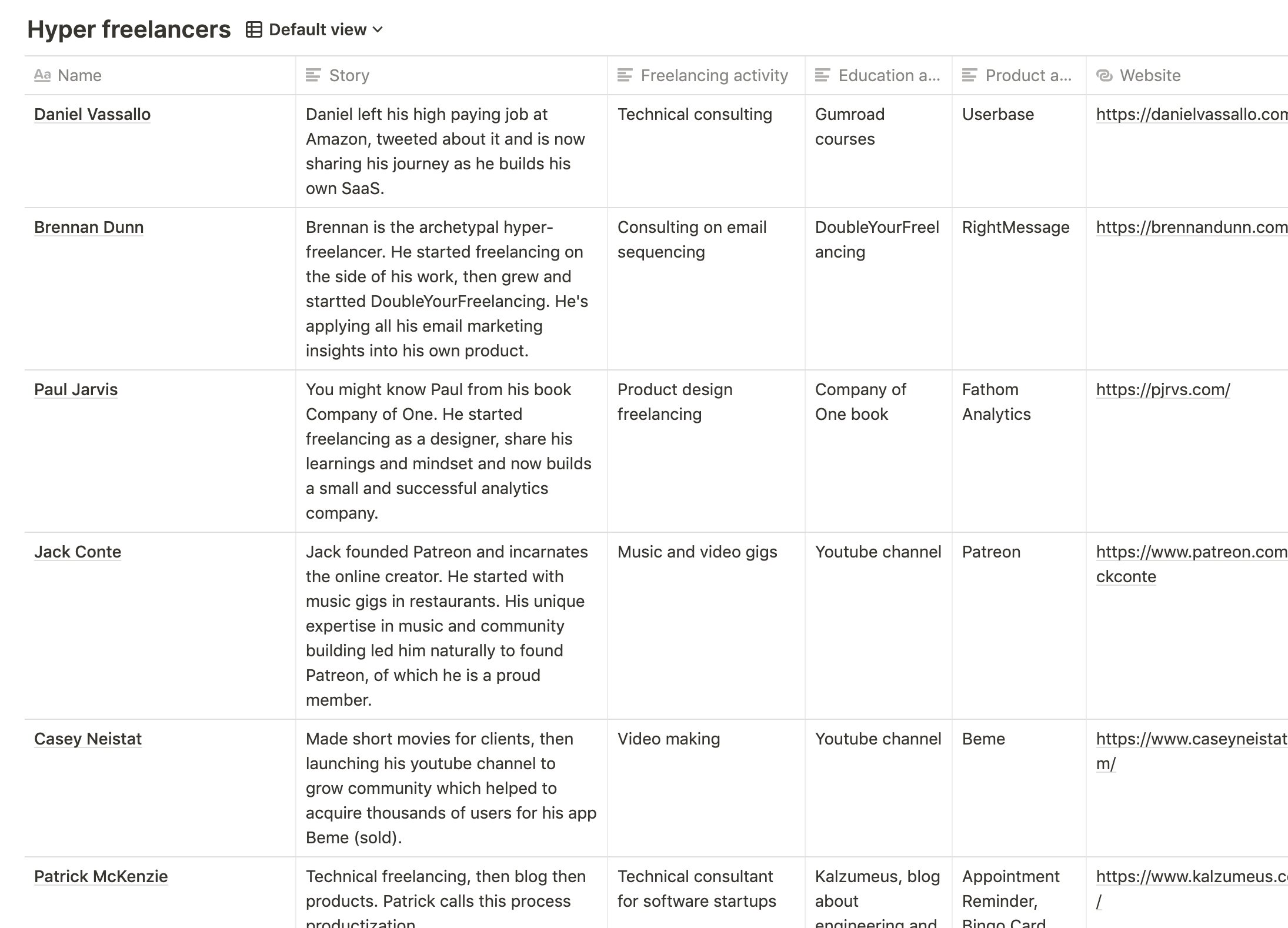
What's their unique expertise? When did they switch from doing one activity to another? Where did they start? How did they reinvest profits from one activity to another?
I think individuals on the quest to reach this model (the Grail!), can also learn from companies who have been following a similar hybrid. I love the examples of 37Signals (Basecamp), Fog Creek (StackOverflow, Trello) or Metalab (Flow).
Read further
This model was inspired by an article by Patio11. This article by Jules Ehrhardt also had an important impact on me. Finally, this tweet by Daniel Vassallo made me realize that this model could be applied to individuals as well. If you found this article useful, you might like my Supercreative newsletter. I write a weekly email full of tips and tools like this for the modern creatives.
I've been living the hyper freelance model for a couple of months now, and I summarized my takeaways in the video below, if you're interested in hyper-freelancing yourself:

Created by Ben Issen
Based in Paris, Ben founded Supercreative. With his team, he creates tools and videos to help creatives be more productive. Prior to that, he worked at Webflow and launched a design agency. @ben_issen
Published:
May 26, 2020
Time to create:
5 hours
Time to share:
9 hours
Reading time:
3 minutes
Recommended next






